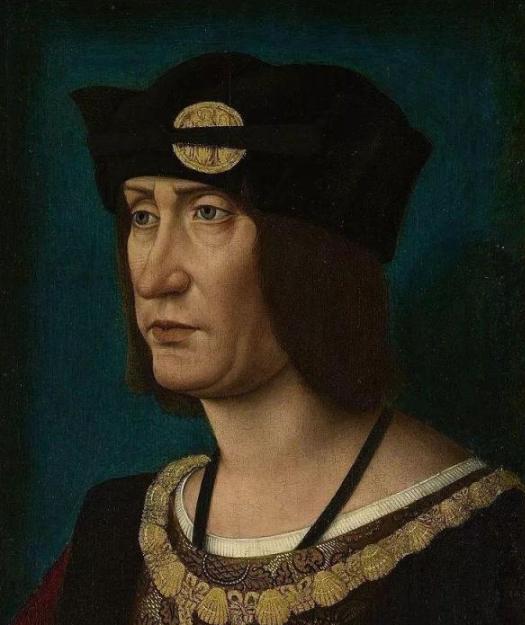The long river of history is running endlessly, there are calm waves, there are also waves, let Xiaobian take you into history and understand history.
King Louis XI of France, who died in 1483, laid the foundations for the unification of The Lands of France, but the Duchy of Brittany in the northwest remained outside the country.
After Louis XI's son Charles VIII ascended the throne, he continued to implement the policy of unifying France, and finally incorporated the Duchy of Brittany into the French territory, completing the great cause of French unification.

Unfortunately, charles VIII, who was only 28 years old, died unexpectedly in 1498. With Charles VIII childless, Louis XII, Duke of Orléans, who married his widow Anne, took the throne.
After Louis XII ascended the throne, he implemented a series of policies for the sake of the people and was known as the "father of the people". Louis XII died on 1 January 1515. Louis XII also had no heirs, and his cousin Francis, Duke of Angoulême, ascended the throne in 1515 as Francis I.
After coming to power, Ferencis I continued his previous foreign policy, namely the invasion of Italy. This was a policy formulated by France to consolidate its position in the Mediterranean, but also to satisfy the desire of the feudal nobility to plunder wealth.
During the reign of Charles VIII, he launched a war to invade Italy in 1494, and Louis XII also launched a war to invade Italy, but lost Milan in 1513. At that time, the small countries in Italy united to fight bravely against the enemy, and Spain and the Holy Roman Empire also helped each other, jointly blocking the pace of French aggression and forcing France to withdraw its troops.
At the age of 20, Francis I vowed to retake Milan. He left domestic affairs in the hands of his mother, and then personally led an army across the Alps to attack Milan. At the Battle of Marignano, Francis I won a great victory and finally recaptured Milan.
In 1519, King Charles I of Spain became Emperor of the Holy Roman Empire, known as Charles V. Charles V controlled Spain, the Netherlands and southern Italy, and also had ambitions to occupy Italy. In addition, Burgundy in France is also a piece of fat in his eyes.
It is not difficult to see from the map that Spain, southern Italy and the Netherlands have formed a three-sided encirclement of France, and France is obviously at a disadvantage. In 1521, the conflict between Francis I and Charles V ignited war in Italy.
In 1521-1544, Francis I fought four encounters with Charles V.
The first meeting was in 1521-1525. In this confrontation, Francis I not only lost Milan, but also lost Burgundy, and he himself became a prisoner of Charles V.
The second confrontation was in 1527-1529, when Francis I united with various princes to fight Charles V and retake Burgundy.
The third and fourth encounters took place in 1536-1538 and 1542-1544, respectively, and neither side bargained much.
After the armistice between the two sides in 1529, Charles V actively pursued a policy of Christian rule in an attempt to establish Christian rule throughout Europe. Francis I immediately formed an alliance with King Henry VIII of England and the Protestant princes of Germany against the regime of Charles V.
In 1535, Francis I made an alliance with the Turkish Sultan Suleiman, gaining a "extraterritoriality" that was extremely favorable to France, making France play an increasingly important role in the diplomatic arena.
In 1544, Charles V personally attacked Francis I and led a large army to Paris. Francis, while encouraging the French people to resist to the death, encouraged protestant princes in Germany to hold an uprising, which made Charles V worried.
In addition, Francis I appealed to his ally Turkey for help. The movement of Turkish troops in Hungary posed a serious threat to the security of Vienna. Faced with the valiant resistance of the French people and the flexible diplomacy of Francis I, Charles V finally abandoned the offensive.
In the same year, Charles V and Francis I signed a treaty at the city of Croby, and the armies of the Holy Roman Empire withdrew from France.
During the reign of Francis I, the power of the Church was greatly weakened. Civil proceedings that used to be heard by ecclesiastical courts were replaced by king's courts, and the king's judicial authority was expanded as much as possible.
Francis I also concentrated the supreme power to rule the country in the Imperial Council, and the Supreme Court has become a decoration.
In 1527, the President of the High Court of Paris declared to Francis I, who was present at the meeting: "You are above the law, and there is no power that can compel you to do anything." This satisfied Francis's desire for power, and he wrote at the end of the king's document the words "This is the meaning of the decay", which became the idiomatic language of the edicts of successive emperors.
On 31 March 1547, The feverish Francis I died in Rapolete, but he left France with an endless legacy: a mighty kingdom that stood tall in Europe.
Well, today's sharing ends here, and we'll see you next time